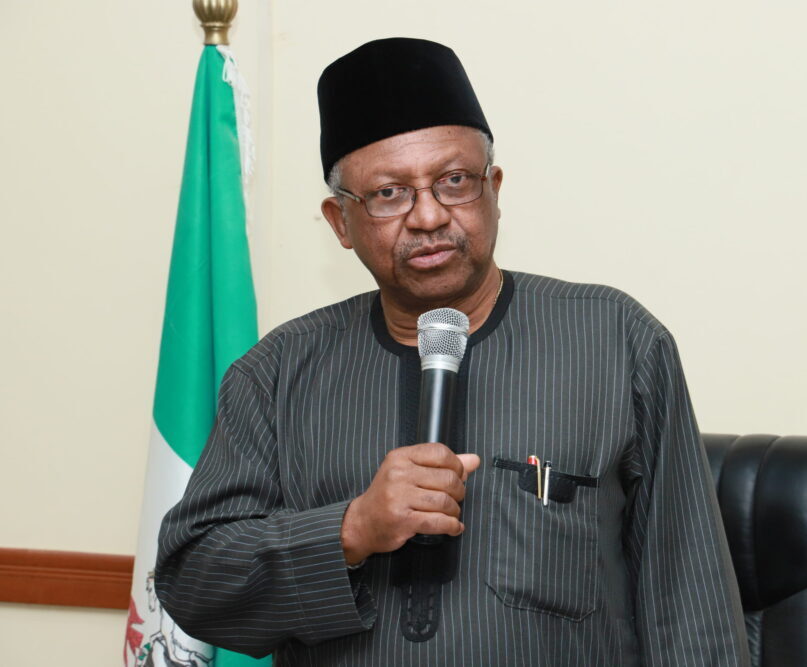Health
Family planning: 27% Contraceptive Prevalence Rate possible — Health Minister

Dr Osagie Ehanire, the Minister of Health, says achieving the 27 per cent Contraceptive Prevalence Rate (CPR) by 2024 is possible.
Ehanire said this while launching a book entitled “Family Planning for A More Productive Nigeria,” at the ongoing Nigeria Family Planning Conference 2020 in Abuja.
He expressed willingness to continue to collaborate with relevant partners and stakeholders in the procurement and distribution of family contraceptives, aimed at achieving the 27 per cent CPR.
“I must commend UNFPA, USAID and others for their support in the procurement and distribution of family planning baskets as well as funding since 2011.
“I believe achieving the 27 per cent CPR by 2024 is possible with their support,” he said.
The minister, who reiterated the commitment of President Muhammadu Buhari’s administration to the issues of population management, described it as a critical component in national development.
He said the Buhari-led administration was focused on supporting scientifically proven family planning, aimed at increasing contraceptive use to moderate present fertility rate.
Ehanire described as outrageous Nigeria’s 5.5 per cent total fertility rate in Sub-Sahara Africa, as recorded in the 2018 Nigeria Demographic and Health Survey (NDHS).
He urged all stakeholders to work in synergy in achieving improved family health for all homes, especially women and girls using family planning.
According to him, self services for family planning are essential and make it rewarding during emergencies as COVID-19.
Ehanire said: “COVID-19 caused disruptions to health system like lockdown but also increased the need for family planning’’.
Mrs Paullen Tallen, Minister of Women Affairs pledged the ministry’s readiness to continue to collaborate with the ministry of health and relevant partners in providing care and reproductive health services to women using family planning.
Tallen expressed the commitment of her ministry to the implementation and expansion of family planning services in Nigeria, in line with the vision of Buhari.
The Emir of Shonga, Alhaji Haliru Yahaya stressed the need to close the gap in the zero preventable maternal deaths, zero unmet needs for family planning and zero unmet needs for gender based violence.
Yahaya said that continuous advocacy was not negotiable in ensuring peoples’ access to family planning.
“Let us change the name from population control to population management, so that people, especially in Islam will accept it.
“You can tell him, your wife has had five children already, leave for now because you promised to take care of her according to Islam,’’ he said.
Ms Ulla Muller, the Country Representative, UN Population Fund (UNPA) said that access to family planning reduced maternal mortality rate by 25 per cent.
Muller who reiterated the determination of the UN to continue to support Nigeria in advancing family planning, said it was critical in preserving mothers for their children.
She said that family planning was paramount in achieving Demographic Dividend as well as the 16 Sustainable Development Goals (SDGs).
“Family planning is an enabler to achieving the 16 SDGs and poverty will reduce,” she said.
She said that procurement of contraceptives was critical in safeguarding the future by involving women.
Dr Ejike Oji, the Chairman, Technical Management, Association for the Advancement of Family Planning (AAFP), while reeling out the successes of the association in advancing family planning said five conferences on family planning had been held in the last 10 years.
He explained that they had brought government’s commitment as counterpart support for family planning commodities purchase, haven increased the support to four million dollars.
Oji said that they had created a medium of conversation with interfaith communities as partnership with the media in dissemination of information around family planning.
Recall that at the 2012 London Summit on Family Planning, it was agreed to provide 120 million women globally access to family planning by 2020.




 Davido's Net Worth & Lifestyle
Davido's Net Worth & Lifestyle 
